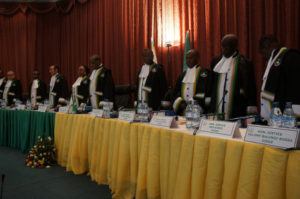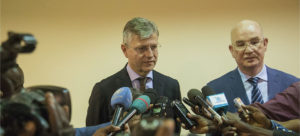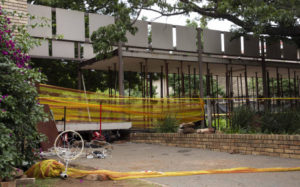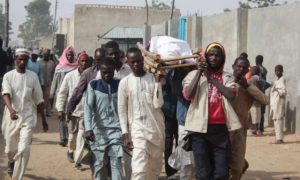By: Skylar Salim
Impunity Watch News, Africa
FREETOWN, Sierra Leone – On February 7, 2019,President Julius Maada Bio declared a national emergency regarding the prevalence of rape and sexual violence in Sierra Leone. He also told all public hospitals to provide free medical care to victims of sexual violence. This declaration grew from public outrage over a case that was never prosecuted involving the rape of a 5-year-old girl by her uncle in 2018, leading to her paralysis. The president noted that hundreds of cases are reported monthly, and “some of our families practice a culture of silence and indifference toward sexual violence, leaving victims even more traumatized.” Around 70% of the victims of this violence are under the age of 15. According to the United Nations, almost half of the women in Sierra Leone face violence, and 90% of women between the ages of 15 and 49 have been victims of genital mutilation.

Bio stated that perpetrators of these crimes are getting younger and more violent, and that sex with minors will be made punishable by life in prison. Currently, perpetrators face a maximum of only 15 years in prison. This declaration came after activists, such as the group Hands Off Our Girls, and First Lady Fatima Bio had been campaigning for reform for months. Hands Off Our Girls is a group supported by the First Lady that works to stop sexual violence against women and child marriage in the country.
Police figures of reported cases of sexual and domestic violence have been rising, with 10,544 reported cases in 2015 to 12,029 reported cases in 2017. Activists have also stated that many cases never get reported, and that the actual number is much higher. During Sierra Leone’s civil war, which lasted from 1991 to 2002, rape and sexual violence against women and girls was widespread. Many women and girls were forced into sexual slavery, to be “bush wives,” during the conflict. A UN report presented after the conflict noted, “the failure to investigate, prosecute and punish those responsible for rape and other forms of gender-based violence has contributed to an environment of impunity that perpetuates violence against women.”
While the country made progress against sexual violence, a report by Save the Children notes that children were left vulnerable to sexual violence by the Ebola outbreak in 2014 as many of them were orphaned. The Rainbo Initiative, an organization that helps sexual violence survivors, notes that they were being overwhelmed by cases involving children every day. Vickie Remoe, a TV producer, has noted “politician will alone will not fix the problem. What we need in behavioral change… men need to learn to think differently about girls, and to act differently towards girls.
For further information, please see:
AP – Sierra Leone President Declares Rape a National Emergency – 8 February 2019
CNN – Sierra Leone’s President Declares Rape a ‘National Emergency’ – 8 February 2019
NYT – Sierra Leone Declares National Emergency Over Rape of Young Girls – 8 February 2019



